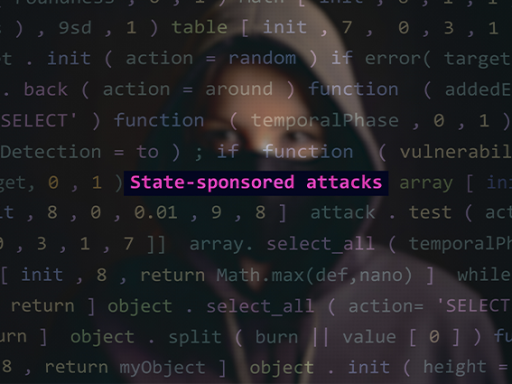Be vigilant, more cyber-attacks are on the way….

Around the world, tensions are rising. These days, hackers backed by governments are ramping up their attacks on businesses and government systems, hoping to cause disruption and chaos.
State-sponsored attacks
When we say “state-sponsored”, we mean cyberattacks that get support from a country’s government. That doesn’t always mean the government itself is pulling the strings, but it’s often providing help or at least turning a blind eye.
This support might come as money—either funding the hackers directly or paying for new tools. It could also mean giving them training, resources, or simply letting them operate freely inside their borders.
These attacks usually tie back to what the sponsoring country wants, whether that’s political or economic gain. Most of the time, the goal is to steal valuable business secrets from other countries, or to exploit how people are viewing situations in the world by using misinformation.
But sometimes, things get more serious. State-backed hackers might go after important systems like power or communications, trying to knock them offline.
State-sponsored techniques
With so much backing, these groups have a big collection of tools up their sleeves. Unlike lone hackers or small criminal gangs, state-sponsored groups focus their efforts on specific targets or goals.
If stealing sensitive information is the main aim, they’ll use attacks like:
- Zero-day exploits: Taking advantage of software flaws that nobody knows about yet, often by targeting the people who make the software.
- Spear phishing: Sending fake but convincing emails to trick people into sharing information or clicking dodgy links.
- Watering hole attacks: Hacking websites their targets often visit, so anyone who drops by gets hit with malware.
When they want to damage important infrastructure, they might utilize:
- Denial-of-service (DoS) attacks: Overloading a system with traffic so real users can’t connect.
- Malware: Malicious software that can wipe out data, encrypt files for ransom, or just cause chaos.
- Supply chain attacks: Hacking software to insert bad code, so anyone using them gets infected without realising.
And when the aim is to sway public opinion the aim to exploit human emotion through misinformation with:
- Hacking and leaking: Stealing and releasing private info to embarrass rivals or change how people think.
- Social engineering: Spreading fake stories, propaganda or stirring up trouble on social media.
- Botnets: Using networks of hacked devices to boost fake news and push certain conversations online.
These tactics are smartly chosen for the situation. Attacks focused on spying usually take a long time and are carefully planned, often targeting big industries like defence, energy or finance.
On the other hand, attacks meant to cause chaos try to hit hard and fast, going after things like power grids or transport during tense times.
And when it’s about changing minds, hackers go for quantity—flooding social media with propaganda, especially during big events like elections.
So what can your organisation do?
- Make staff aware to be careful with regards to email and telephone messages
- Encourage staff not to pass out information to cold callers
- Make sure your equipment is within manufacturer support and running the latest firmware and software
- Keep computers up to date
- Use endpoint security software (anti-virus, anti-ransomware) for computers
- Use email security to scan email for threats
- Encourage staff to only connect their endpoints to trusted networks
- Work on the basis of least trust and verify to ensure someone is who they say they are and what they are requesting is valid
Remember this
It is always far EASIER AND CHEAPER to prevent an exploit than to deal with the aftermath.
It costs very little to keep your organisation safe and secure and to minimise any damage a potential hacker could do.
If you get your business or organisation Cyber Essentials or Cyber Essentials Plus accreditation then you also show other businesses or organisations that you take cyber security and protecting yours and their data seriously too.
If you want more information call us on 01722 411 999 and we will be happy to help.
